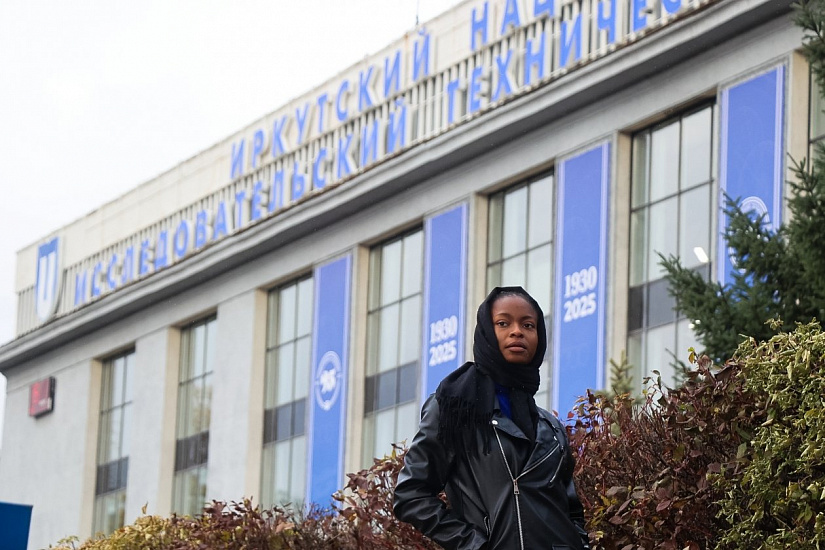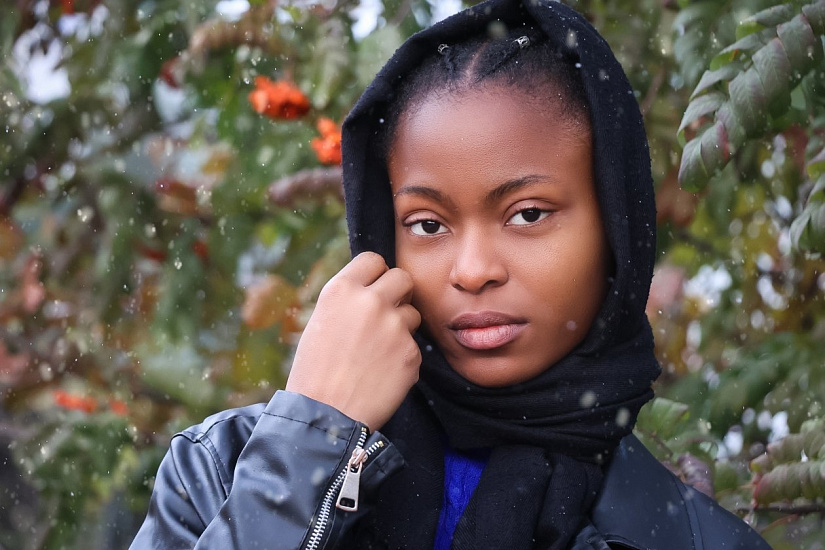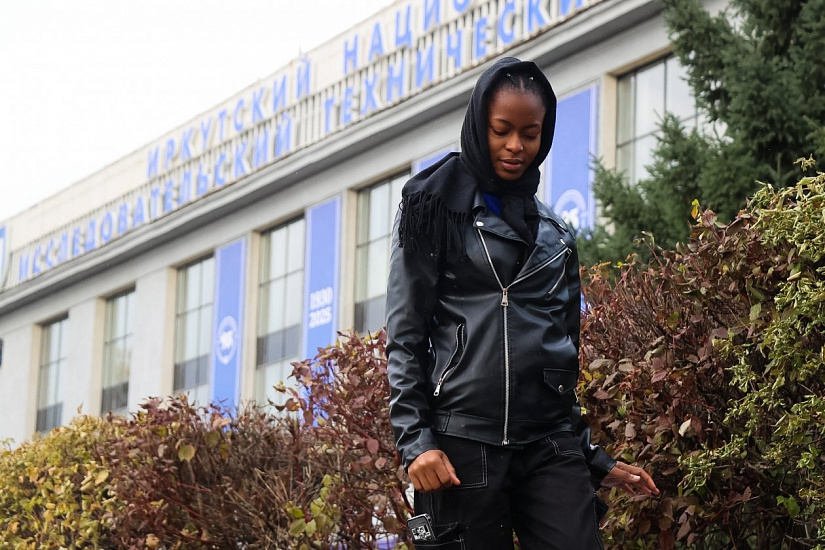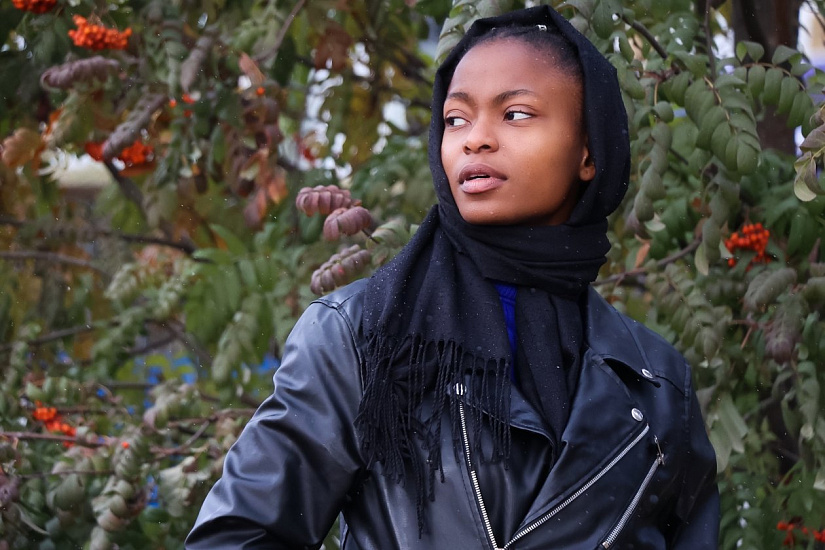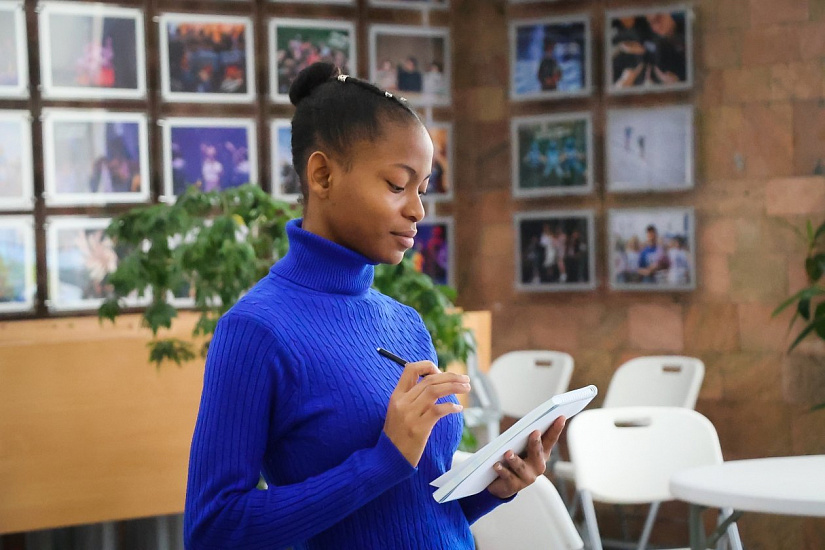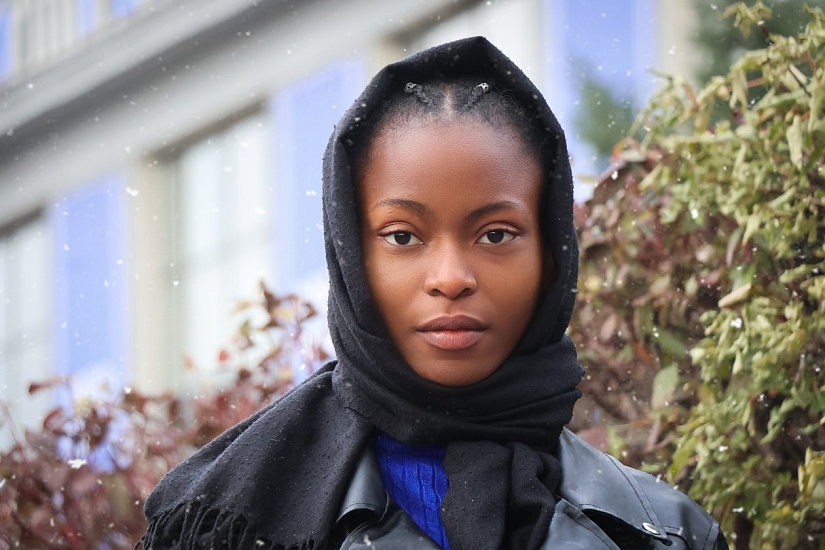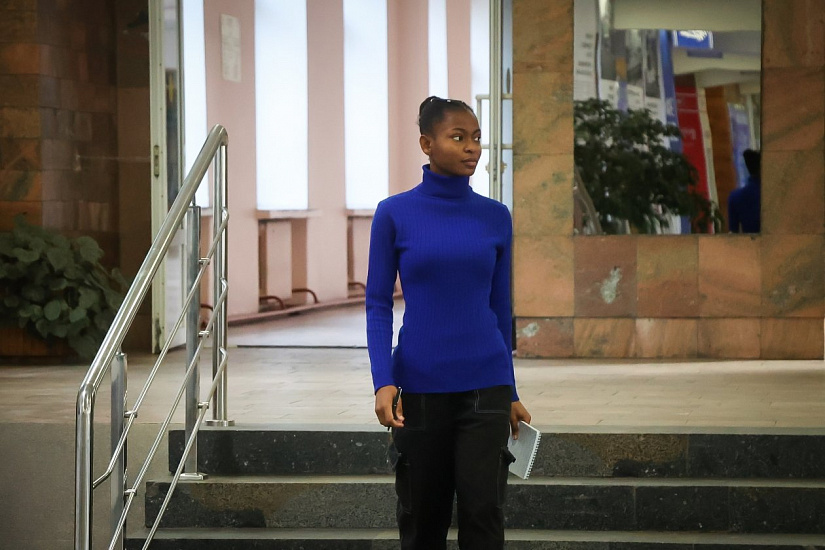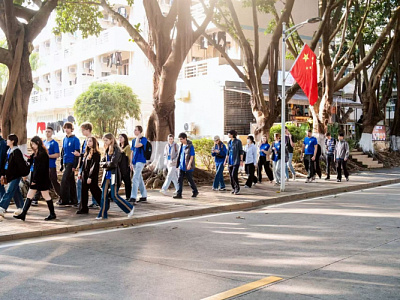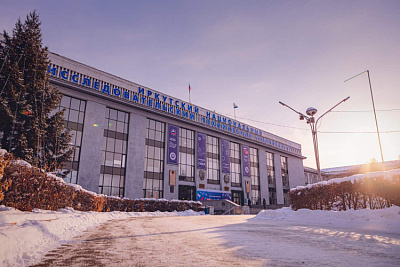From Sunny Nigeria to Frigid Irkutsk: Honest Story of an African Student
Moving fr om a sunny country to study in harsh Siberia is a decisive step spanning 10,000 kilometers. Angelrita grew up in a close-knit family in Nigeria's largest city, but now she lives and studies in Irkutsk – a city that is the complete opposite of her homeland. What does a young woman feel after making such a choice? Our protagonist is a petite student with a fiery heart, currently a second-year bachelor's student in the “Artificial Intelligence and Computer Science” program at the Baikal School of BRICS of Irkutsk National Research Technical University. IrkutskMedia interviewed Angelrita to learn about her student life and to see our city through her eyes. Although she is learning Russian and has made progress, the conversation was held in English – Angelrita’s native language. We discussed homesickness, a newfound love for the frost, cultural shocks, and her most awkward moments.
Tell us about yourself. How old are you? Wh ere were you born?
I'm 20 years old. I was born in Lagos, the largest city in Nigeria. We have a large, friendly family: mom, dad, and five children. I am the fourth child – I have two older brothers, an older sister, and a younger brother who is 19. My dad is retired now; he used to work as an accountant. My mom owns a school and serves as its principal. Our family is very tight-knit; I have a close and trusting relationship with them, so being separated is hard for me. However, my brother also studies here in Irkutsk. That is exactly why I came to this city – so we could be together.
Why did your brother choose Irkutsk and not another city?
When my brother was applying for his studies, he had two options: here and, I think, somewhere in Moscow. This university accepted him first, and that’s just how it turned out.
Tell us, what was the main reason for coming to Russia? Was it just because your brother lives here?
No, that wasn't the main reason. I came to study. Nigeria is a wonderful country, and the education there is good, too. But I came here to get better qualifications, which will give me a better chance of building a strong career or continuing my education abroad. By studying in Irkutsk, I will definitely have good job opportunities in the future. Initially, I went to Dagestan and studied there. I was supposed to continue my education in that region, but I felt uncomfortable. I wanted to be with my brother.
Was it easy to decide to move? How did your relatives and friends react?
It was easy because I had a goal. My family supported the decision, but my friends didn't know anything until I arrived in Irkutsk, so they were surprised. Some were even sad to see me go. My relatives are calm about me leaving. If I decide to stay in Russia – that’s good. If I decide to return – that's also good. Most likely, my choice will be between staying in Russia or moving to the UK or the USA.
Tell us about your studies. What is your major?
I study Artificial Intelligence and Computer Science at the Baikal School of BRICS. Everyone thinks it's a very difficult field, but I disagree because I think it's a very relevant specialty. For me, it all comes down to interest – if you have it, you won't have problems with your studies. Yes, it will be difficult, but if there is no interest, you will think: “Oh my God, this is so hard!” So, it's all about understanding what you want and achieving your goal.
Is it difficult to study in a foreign country while simultaneously learning the language? Which language do you speak most often in Irkutsk?
Yes, it is very difficult to study in another country. It is especially unique to study in a foreign country in your native language. For example, I study here in English and don't use the local language much. I would say my Russian is poor precisely because I stopped practicing it. My Russian classmates refuse to speak Russian with me – they always speak English! It's hard for me to practice. I only speak Russian when I go to the supermarket or ride the bus.
What is Irkutsk to you? Is it just the city where you study?
For me, Irkutsk represents resilience. It didn't force me to just “get used” to difficulties; it taught me to cope with them. Let me explain using the weather as an example. Even on cold days when many people feel tired and worn out, I watch people living their ordinary lives and going about their business. Seeing this, I don't feel lazy or tired. When it's cold, I stay active. I don't have that feeling of, “Oh, I'm so sleepy”.
Irkutsk taught me to keep moving forward, no matter what.
You can learn about Angelrita's childhood, hobbies, details of her adaptation to life in Irkutsk, and her experience learning Russian by reading the full interview on the IrkutskMedia news agency website.
Managing editor and photographer: Yulia Ushakova
